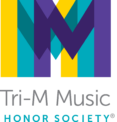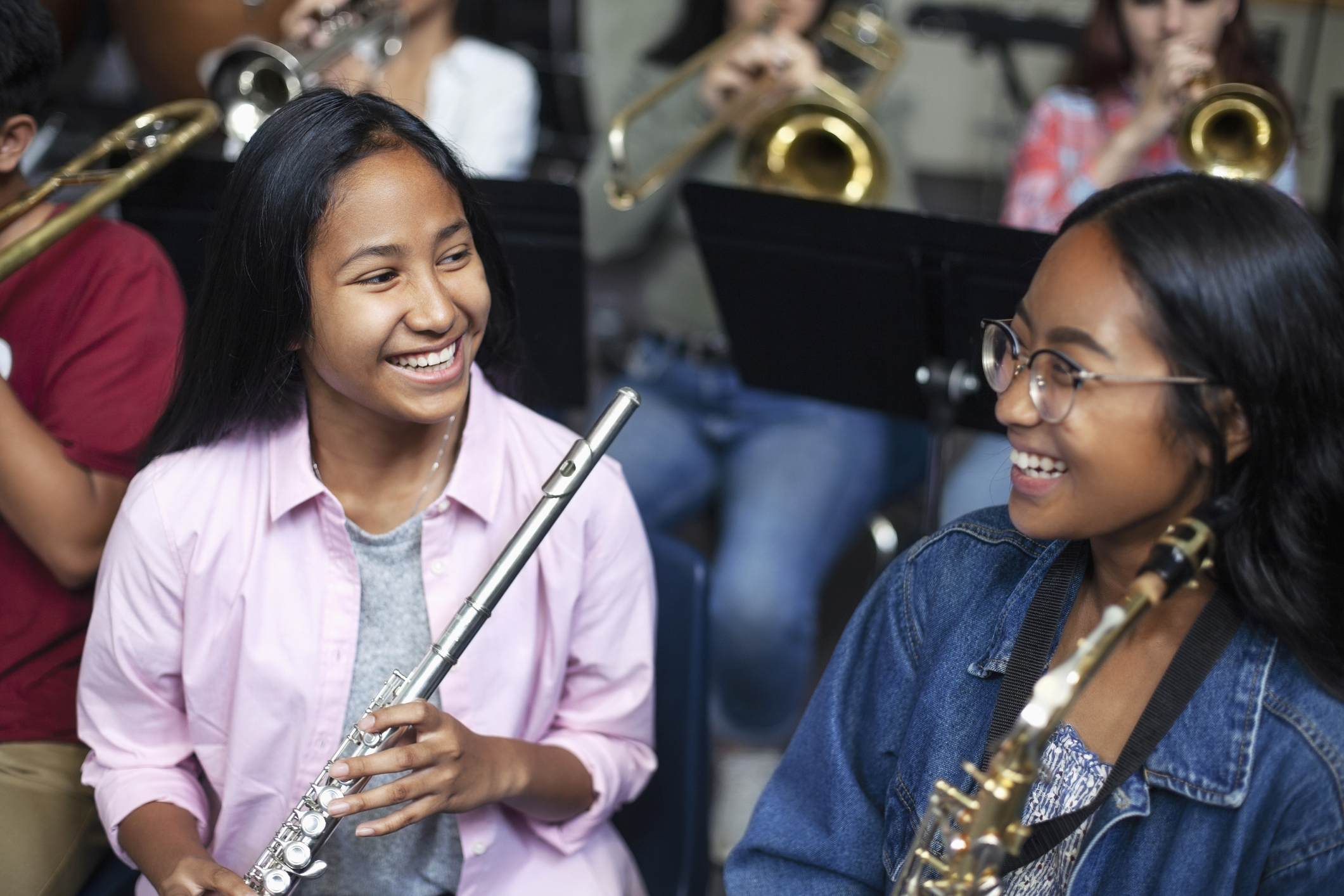
A Tri-M® Music Honor Society chapter opens up a world of opportunities for students who have already shown themselves to be academically capable and musically gifted. Through performance and community service, they’ll develop confidence, creativity, critical thinking, compassion, and a host of other leadership skills sure to serve them well in school and beyond. Get started today!

A Tri-M® Music Honor Society chapter opens up a world of opportunities for students who have already shown themselves to be academically capable and musically gifted. Through performance and community service, they’ll develop confidence, creativity, critical thinking, compassion, and a host of other leadership skills sure to serve them well in school and beyond. Get started today!
Whether our students go on to study music in college, become professional musicians, or simply have a deeper appreciation of the songs they hear on the radio, as teachers, we recognize the power of music education. Learning music helps children develop vital life skills, from problem-solving and multitasking to better focus and teamwork. The lessons they learn in band, chorus, and orchestra matter and make a difference long after students leave the classroom. And when students have the opportunity to engage more deeply in those lessons with one another, there’s no limit to what they can accomplish in their communities.
For 88 years, the Tri-M Music Honor Society—an international organization for grades 6 through 12—has recognized students for their musical and academic achievements. By nurturing students’ talents and hard work, the society hopes to instill a lifelong commitment to music and community, and build bonds of camaraderie that last just as long.
What is the Tri-M Music Honor Society?

Tri-M is sponsored by the National Association for Music Education (NAfME). This collaborative community supports music educators and advocates for equitable access to music education. It is the only national honor society for student musicians in middle and high school. Students with an A grade in music and Bs or higher in all other classes are eligible to join.
Tri-M boasts over 1,900 chapters across all 50 states and more than 75,000 student members. The society helps these young musicians develop lifelong skills as they build community and inspire the next generation of music lovers, makers, and educators through performance and community service.
How do I start a Tri-M Chapter at my school?

Tri-M Music Honor Society Advisor Hannah Cole encourages teachers to start a chapter at their school. For those worried about an additional time commitment, she says, “that little bit of teacher investment up front pays off tenfold in future years.” She adds that Tri-M’s national office makes it very easy to sign up and get started by following these steps:
- Designate a chapter advisor.
- Complete the membership form.
- Submit a one-time $100 activation fee.
- Receive a certificate and welcome pack that includes everything needed to get started.
Cole notes that the website’s materials—ranging from a template for the induction ceremony to ideas for fundraisers and other activities—make it easy to get started.
What do students and teachers say they love most about Tri-M?
Here’s what Tri-M members and graduates say the innovative program means to them.
“Tri-M teaches young students about leadership, confidence, communication, and so many other life skills that are applicable outside of school.” —Leonardo V., Tri-M alumnus
Advisor Hannah Cole shares that Tri-M provides opportunities for students who might not always get a chance to step into leadership roles in their regular academic day. Recalling one student who took charge as the chapter president last year, she said, “Although she was very quiet, she blew me away with how much she accomplished as Tri-M president. She excelled at running meetings, building consensus, and working with others.”
Since the society encourages chapters to set their own eligibility requirements, Cole credits Tri-M with encouraging her to rethink student leadership and casting a wider net. “Sometimes,” she observes, “people will surprise you.”
And it’s not just chapter presidents who develop their abilities as leaders. From officers making meeting agendas to members realizing how much time it really takes to plan an event, students learn lifelong skills that can transfer to their college or work experience.
“Tri-M is such a special group because it allows musicians to make connections with peers and inspire people while helping the community at the same time.” —Avery A. Tri-M alumnus
Because of the student-led component, every chapter operates differently. But one thing all Tri-M members have in common is a deep love of music and how it can help others.
The NAfME website provides plenty of ideas for events and fundraisers, plus students are encouraged to bring their own unique ideas to the table. The result has been a diverse array of service projects and community building.
Tri-M students from Monelison Middle School in Virginia, for example, participated in Wreaths Across America, helping lay over 500 holiday wreaths on the graves of U.S. veterans. Tri-M students at Hampton Bays Middle School in New York participated in a Day of Service packing food donations in partnership with a local charity. New Jersey’s Bridgewater-Raritan Middle School’s Tri-M, on the other hand, took a different approach. Students there held a Jazz Festival, featuring six bands from five different schools culminating in musician workshops.
“I get to share my passion and love for music with others. That’s what being a member of Tri-M means to me.” —Andrea S., Tri-M alumnus
Kimberly Zimmerman, a Tri-M advisor, says the honor society has transformed her middle school’s music department. Her students offer one another tutoring via small ensemble rehearsals. “Enthusiastic, budding musicians find community and have a chance to collaborate with other students,” she says. This peer tutoring has allowed her students to give back to the music program and broaden their musical horizons.
“My string orchestra students teach the chorus kids how violas work—and learn that bassoons exist!” she jokes.
But the positive effects of this student-led educational opportunity are palpable.
By practicing together and learning to give and receive constructive criticism, students sharpen their skills. Just as importantly, they become more aware of the greater music community in their school and beyond. It’s an opportunity Zimmerman is almost wistful about.
“I only wish that I had such an opportunity when I was in middle school!” she says.
Learn more about how to start a Tri-M Music Honor Society Chapter at your school today!


